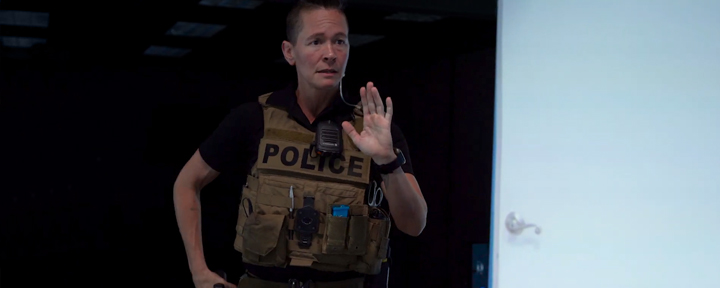
As discussed in a previous article, verbal de-escalation is an incredibly complex tactic. There are a wide variety of factors at play, ranging from the subject’s state of mind, their ability to be persuaded and any immediate dangers in the environment. Do note: these factors only encompass those officers cannot necessarily control.
In regards to factors officers can control in de-escalation, these include issuing different de-escalating phrases, attempting to build a connection with the subject, using calmer tones and engaging in softer body language. After all, an officer must choose peaceful tones and body language to match the words they are issuing. Speaking calmly, but holding a threatening stance will not persuade a subject.
Building These Skills
Fortunately, mastering verbal de-escalation and pairing it with appropriate body language is a skill that can be developed before an officer’s feet hit the pavement—and before they are in a potentially life-and-death situation.
It all begins in the classroom. Trainees are taught about de-escalation: the various tactics, its importance in the field, examples from case studies and so forth. Building this understanding is critical. After, trainees must practice de-escalation in length in real-life situations.
This is where VirTra’s immersive simulators come into play. Trainees step into the simulator and are surrounded by a real-life scenario chosen by the instructor. From there, the student officer must analyze the situation and respond to the subject, putting into practice the de-escalation skills taught in the classroom.
Perfecting These Skills
Depending on the words and body language issued by the trainee, the instructor can choose for the scenario to branch off into a different ending. For example, if the officer is successful in demonstrating correct verbal de-escalation, the instructor can program the subject to comply and the scenario to end.
But in instances where a student is not employing techniques properly, instructors can make the scenario escalate and become notionally dangerous—thus showing officers the real-life consequences of their actions. Due to the nature of simulation training, officers are able to try de-escalating scenarios repeatedly, making for consistent, reliable training.
Start practicing these critical skills in a safe, controlled environment.
To learn more or to request a demonstration, contact a VirTra representative.
Recently Published
Join Our Newsletter







